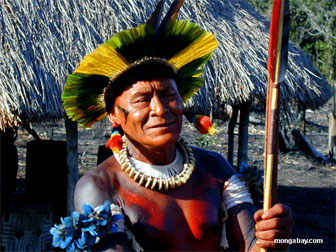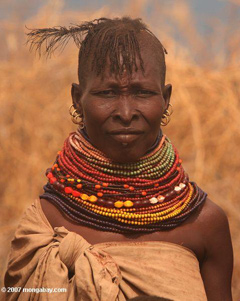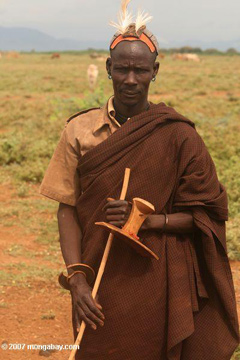IP laws not helping indigenous people protect traditional knowledge
mongabay.com
November 13, 2008
Indigenous knowledge has long been exploited for profit by outside groups, while local communities see few benefits. A new report suggests reform may lie in promoting self-governance rather than conventional IP laws.
|
|
Promoting capacity for self-governance rather than using conventional systems governing intellectual property rights may be a more effective way to safeguard traditional knowledge of indigenous groups, argues a new report published by an international team of IP experts.
Released at an IP conference convened by Sciences Po, a French research institute, and The Innovation Partnership, a Canadian NGO, the report details how traditional knowledge is treated in Brazil, Kenya and Northern Canada. It finds significant differences in the effectiveness of IP laws and policies in protecting the wisdom and knowledge accumulated by indigenous communities.
"Laws on intellectual property rights are so confused they are reducing intellectual property rights claims by indigenous people to barely a trickle," said Tania Bubela of the School of Public Health, University of Alberta (Canada), co-author of Toward a New Era of Intellectual Property: From Confrontation to Negotiation. "It has become clear that we need more than property rights to protect traditional knowledge and ensure fair and equitable benefit sharing with indigenous communities for the use of their knowledge."
"Many countries have made moves to protect traditional knowledge, but they have largely been ineffective because they focus on who owns the property rights," she continued. "The extreme difficulty of determining this has effectively acted as a road-block to progress."
 Kayapo shaman in the Brazilian Amazon |
The report says that despite efforts to create legislation that would benefit indigenous groups for their knowledge of medicinal plants, Brazil's overly bureaucratic system has become a hinderance to protecting indigenous knowledge, chiefly because laws are interpreted to "depend on the free and informed consent of all the local communities that potentially or actually hold them".
“The way that laws are interpreted, many villages, many communities, are considered to own some share of the traditional knowledge," said co-author Edson Beas Rodrigues Jr of the University of São Paulo. "The outcome of Brazil’s efforts to create a viable framework for TK has instead led to an overabundance of overlapping property rights. This is what others have called 'the tragedy of the anti-commons,' where high transaction costs and the inability to negotiate prevent any progress at all.”
Rodrigues cites an example from the Brazilian cerrado where of 400 plants collected, 290 were being used in medicinal recipes, but "only 164 had ever been identified by species, 37 of them up to the level of genus, and 54 had not been identified at any level."
"So the project would probably have introduce to the world community previously unknown plants," he said. "They continue [to be] unknown, uncharacterized, unused because of the current legal system."
The authors say that lack of trust in the system is a major stumbling block in Brazil.
"Most striking is that no matter where we looked, the lack of trust played a vital role in blocking negotiations that could have benefited both sides, as well as the larger public," said Dr. Richard Gold of McGill University and chair of the International Expert Group that produced the report.

|
In Kenya, there is a similar distrust among the nomadic Turkana who possess a wealth of knowledge about their surrounding environment but suffer from lack of property rights. Oppressive and arbitrary government policies on indigenous land rights land foster discontent in national legal systems.
Compulsory government acquisition of indigenous land "reduces their ability to use their resource wealth, and retain their traditional knowledge regarding biological resources and medicinal plants," said co-author Kent Nnadozie of McGill Faculty of Law.
The report says that a bright spot for the management of traditional knowledge can be found in northern Canada, following the granting of autonomy to indigenous territories, which has allowed tribes to reclaim traditional practices and legal systems.
"The co-management of land use and natural resources that has come about through this shift in the legal landscape has allowed traditional knowledge owners to be part of decision-making processes." said Bubela. "Self-government allows even greater powers of autonomy and the establishment of governance institutions that blend traditional and modern practices. Such institutions can also provide the resources for negotiating rights to and, where appropriate, the commercialization of traditional knowledge."
"The dominant argument, internationally, has been that traditional knowledge can be protected by property rights," said Bubela. "Our case studies have shown that, in practice, this is very hard to do. In our view, promoting autonomy and capacity for self-governance for indigenous communities rather than property is the key."
